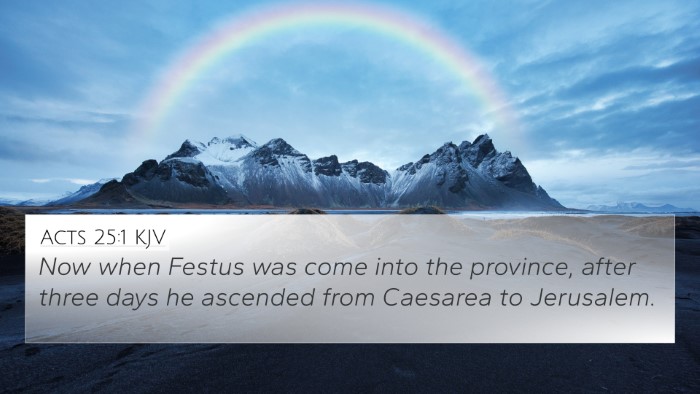Understanding Acts 10:1
Acts 10:1 reads: "There was a certain man in Caesarea called Cornelius, a centurion of what was called the Italian Regiment." This verse introduces a significant figure in the New Testament narrative, highlighting themes of divine revelation, the call to the Gentiles, and the breaking of cultural barriers.
Verse Context and Analysis
In this passage, we see Cornelius, a Roman centurion, a man of authority and respect, and an exemplary character who fears God and performs good deeds. His position in the Italian Regiment signifies not only military power but also indicates a wider audience for the Gospel message that will follow. The significance of Cornelius’ character is paramount, as it sets the stage for the entry of Gentiles into the Christian faith.
Thematic Elements
- Divine Revelation: Cornelius receives a vision from God, marking the start of God's revelation that the Gospel is for all people, not just the Jews.
- Breaking Cultural Barriers: This narrative begins to dismantle the idea that salvation is exclusive to the Jewish people, showing that God's grace extends beyond social and ethnic boundaries.
- Preparation for Evangelism: The verse highlights God’s providence in preparing the hearts of people to receive the message of Jesus Christ through individuals like Cornelius.
Insights from Public Domain Commentaries
Matthew Henry notes that Cornelius is an example of genuine piety and devotion, showing that true faith can exist outside the traditional confines of Judaism. His prayer and almsgiving are seen as recognized by God, emphasizing that God is attentive to those who earnestly seek Him.
Albert Barnes expands upon the implications of Cornelius's character, suggesting that his position as a centurion also signifies the potential influence of Christianity among Gentiles, which would lead to a broader acceptance of faith in Christ. Barnes also highlights the importance of the location, Caesarea, as a cultural melting pot, further enhancing the significance of this divine interaction.
Adam Clarke provides a historical backdrop, indicating that Cornelius’ story is pivotal in understanding the transition of the early church from a Jewish-centric movement to a global faith. He notes the significance of military leaders becoming key figures in the Christian narrative as a signal of the expanding reach of the Gospel.
Bible Verse Cross-References
To fully grasp the implications of Acts 10:1, it is beneficial to consider several related Scripture passages:
- Matthew 28:19-20 – The Great Commission, which instructs the disciples to make disciples of all nations.
- Acts 2:38-39 – Peter’s proclamation of salvation being available for all, not just the Jews.
- Acts 11:18 – The acknowledgment by the early church that Gentiles are included in God’s plan of salvation.
- Romans 1:16 – Paul emphasizes that the Gospel is the power of God for salvation to everyone who believes, to the Jew first and also to the Greek.
- Ephesians 2:14-16 – Describes Christ breaking down the dividing wall between Jews and Gentiles.
- Galatians 3:28 – Highlights the unity in Christ among all believers regardless of background.
- 1 Peter 2:9 – Describes believers as a chosen people, implying the inclusivity of all who call upon His name.
Connections Between Bible Verses
The narrative in Acts 10:1 serves as a focal point for comparing different sections of the Bible that highlight the move toward inclusivity in God's salvation plan. The references to the Great Commission illuminate Jesus' command to spread the Gospel universally. Furthermore, Peter’s journey with Cornelius’s conversion reflects broader themes seen throughout the epistles where Paul discusses the breaking of barriers and oneness in Christ.
Conclusion
In conclusion, Acts 10:1 is more than a mere introduction to a character; it signifies a monumental shift in the early church's mission and understanding of God’s plan. The connections outlined through various biblical texts illustrate the unifying thread of salvation that weaves through both Old and New Testaments, demonstrating God's desire for all of humanity to be reconciled to Him.
Further Study and Tools
To explore more on Acts 10:1 and its implications, consider utilizing tools for Bible cross-referencing such as:
- Bible concordances that reference key terms and themes.
- Cross-reference Bible study guides available through various biblical research tools.
- Online resources that offer comprehensive Bible cross-reference materials.
By employing these resources, one can deepen their understanding of the conversations happening throughout Scripture and draw connections that enhance their overall grasp of the biblical narrative.



















